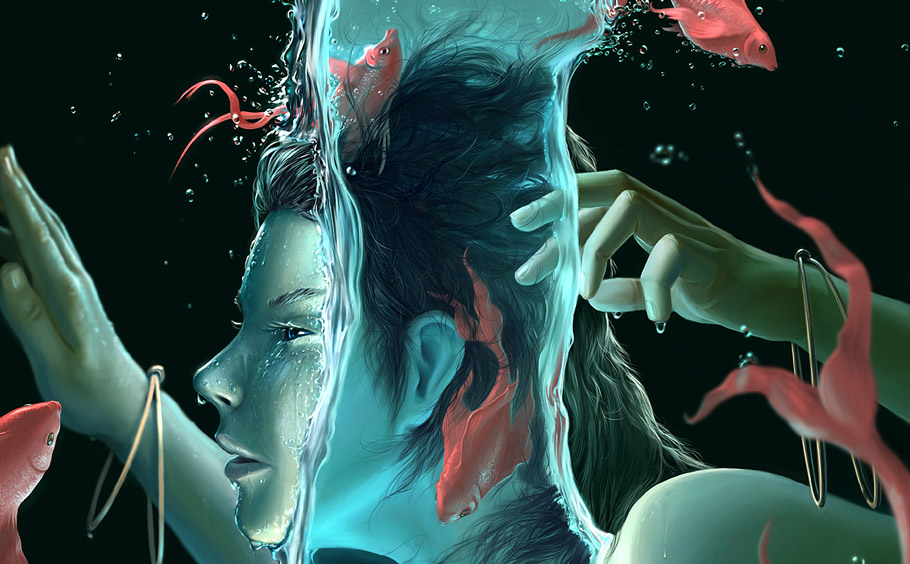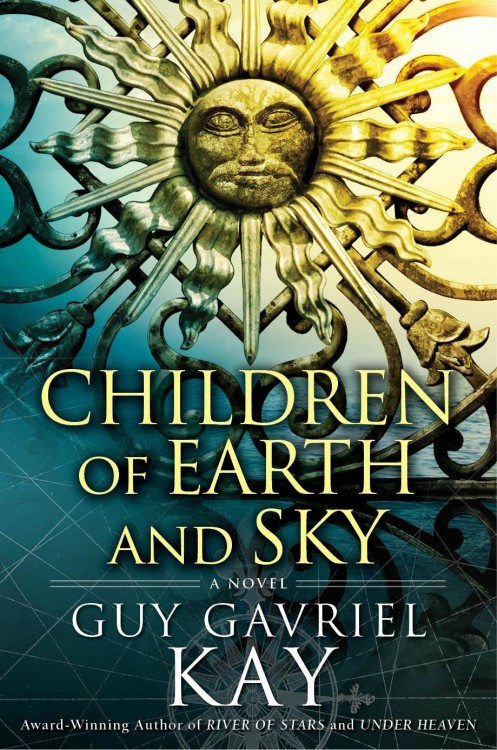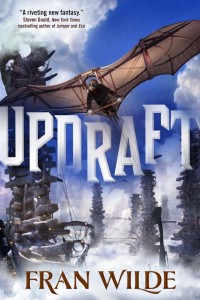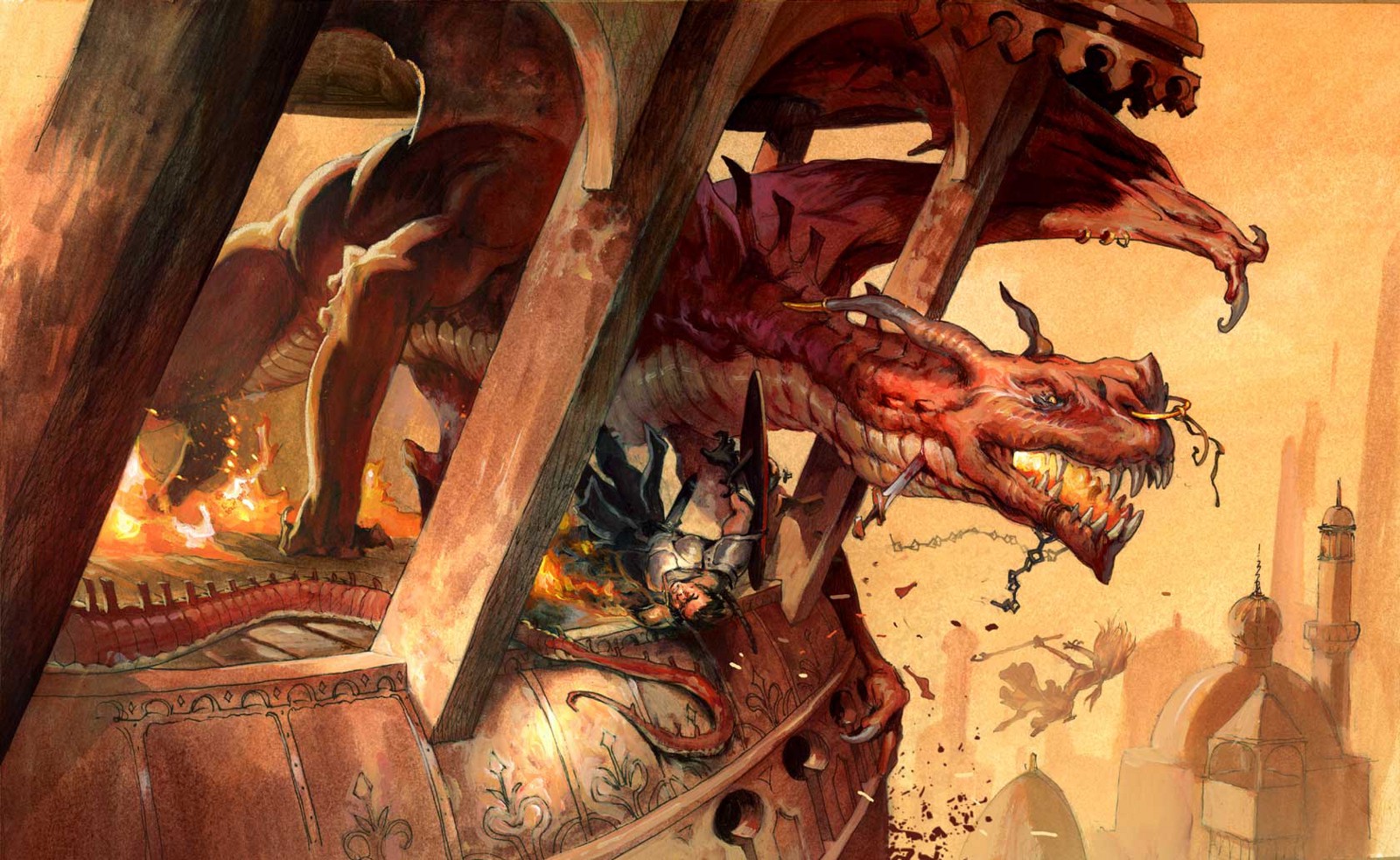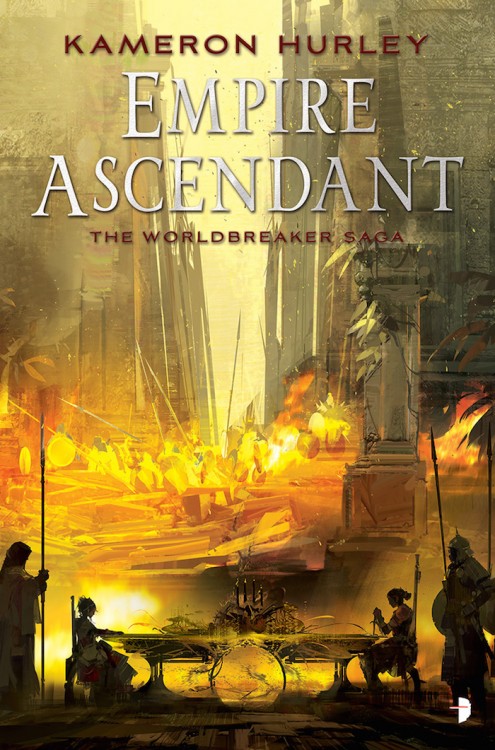
Via the Barnes & Noble Sci Fi & Fantasy Blog, Angry Robot Books and Kameron Hurley revealed the cover art for Empire Ascendant, the sequel to 2014’s The Mirror Empire, and one of my most anticipated novels of the year. As is typical for Angry Robot and artist Richard Anderson (responsible for many great recent covers, including “The Builders” by Daniel Polansky, The Last Mortal Bond by Brian Staveley, and Time Salvager by Wesley Chu), it’s absolutely gorgeous.
“I was floored when I got the sketch for the cover of Empire Ascendant, and blown away by the final version,” Hurley told Joel Cunningham of the Barnes & Noble Sci Fi & Fantasy Blog. “It’s an extraordinary piece of art that perfectly captures the high stakes of the book and its key characters.”
“[I wanted] to contrast the massive, cold, army invading, with the calmness and strength of the two main characters at the table,” Anderson added.
About the Book
Loyalties are tested when worlds collide…
Every two thousand years, the dark star Oma appears in the sky, bringing with it a tide of death and destruction. And those who survive must contend with friends and enemies newly imbued with violent powers. The kingdom of Saiduan already lies in ruin, decimated by invaders from another world who share the faces of those they seek to destroy.
Now the nation of Dhai is under siege by the same force. Their only hope for survival lies in the hands of an illegitimate ruler and a scullery maid with a powerful – but unpredictable –magic. As the foreign Empire spreads across the world like a disease, one of their former allies takes up her Empress’s sword again to unseat them, and two enslaved scholars begin a treacherous journey home with a long-lost secret that they hope is the key to the Empire’s undoing.
But when the enemy shares your own face, who can be trusted?
The Mirror Empire was one of my favourite novels of 2014, and, no pressure, I expect the sequel to continue Hurley’s trend of pushing the boundaries of epic fantasy. Empire Ascendant will hit shelves on October 6, 2015 and is available now for pre-order.
